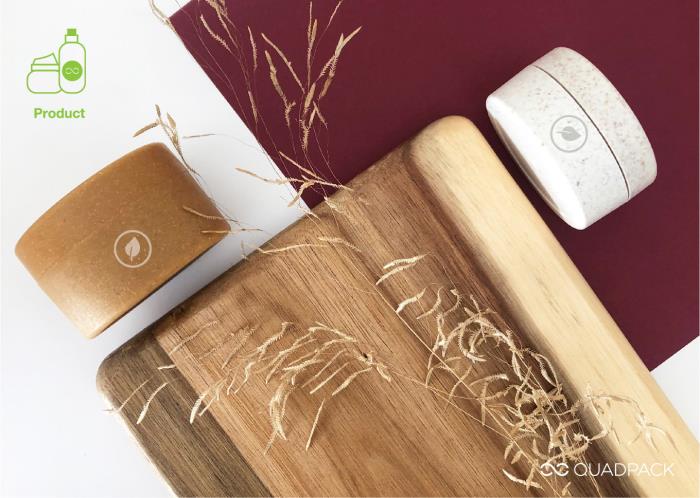Packaging with a positive impact on people and the planet
Based on data and transparency, Quadpack aims to continuously improve the sustainability of its product portfolio
Sustainability is a long-term commitment with innovation, transparency and change. As a packaging manufacturer and provider, Quadpack is directing the sustainable transformation of its portfolio through its ‘positive-impact packaging’ strategy. By using data-based assessment tools to measure products’ carbon footprint, circularity and other key performance indicators, the strategy brings more accountability to Quadpack’s sustainable innovations.
“Positive-impact packaging is a long-term journey that aims to better inform our clients,” says Lyne Hélène Bouchard, Quadpack Sustainability Champion. “But above all, it’s a commitment with the future. Our ultimate goal is to give back to the environment more than what we took.”
Quadpack has opted for the LCA (life-cycle assessment) tool to measure indicators such as water consumption, waste and pollution. Key LCA pillars are being considered for the strategy, circularity and carbon footprints being the most important ones.
What’s more, reduction of CO2 and an increase in circularity are part of the voluntary commitments which are to be found in a number of European sustainability initiatives, such as the Worldwide New Plastics Pact – Ellen McArthur, the European Plastics Pact, the EU Plastics Strategy (2030), Pacte National sur les Emballages Plastiques (France) and the UK Plastics Pact. All stipulate PCR* content, as well as effective recycling, reusability, compostability and more.
As transparency is one of the foundations of its strategy, Quadpack created a rating system based on LCA assessment and sustainability attributes that will be available for all its Q-Line products. Ranging from a minimal level of sustainability to positive-impact packaging, the rating will shed light upon every pack’s environmental credentials. The considered sustainable attributes are:
Reduce: reduced amount of material used or the amount of energy used to produce it.
Reuse: refill system or reusable format.
Replace: materials replaced with sustainable alternatives like recyclable and/or biodegradable sources.
Recycled material: packs made of post-consumer recycled material.
Recycle: recyclable packs.
Biodegradable: packs that can disintegrate without leaving microplastics behind.
“Knowledge is power. The LCA assessment, our partners and initiatives that are being put in place are helping us on our journey to positive-impact packaging. The aim is to create packs that will have as little impact as possible on the environment and guide our customers to the best of our knowledge with their own sustainable transformation,” says Bouchard.
We invite you to read more about positive-impact people and positive-impact processes, the other two axes of Quadpack’s sustainability strategy.
* Post-consumer recycled
